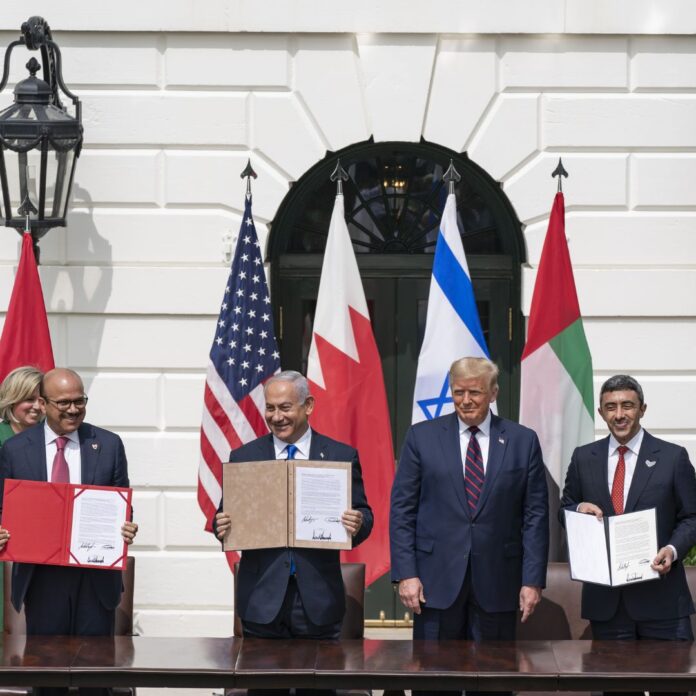In an unexpected move, Syria’s new President, Ahmed al-Sharaa, expressed willingness to pursue peace with Israel. This news came after a U.S. lawmaker visited Damascus and had a private meeting with Sharaa. During their discussion, the Syrian leader said that he wants better relations with Israel and even mentioned joining the Abraham Accords. These are a set of peace agreements made in 2020 between Israel and countries like the United Arab Emirates, Bahrain, and Morocco.
This is a big deal because Syria and Israel have been enemies for many years. Their relationship has been full of tension, wars, and mistrust. But now, Syria’s new leader is showing signs of change. He said he would consider normalizing ties with Israel if the right conditions are met. One of the main conditions? The United States lifting the tough sanctions that are currently placed on Syria.
A Push to Get Out of China’s Shadow
Another interesting point raised during the meeting was Syria’s position in global politics. The Syrian president reportedly told the U.S. official that he doesn’t want Syria to be seen as being in China’s arms. This means he doesn’t want his country to become too dependent on China. Instead, he wants Syria to have better relationships with Western countries, including the U.S. and Israel.
“China Track” Fuels Russia’s $245 Billion Trade as It Sidesteps Western Sanctions
For many years, Syria has been closer to countries like Russia and China. But now, with a new president in charge, things might be changing. He seems to want a fresh start, and for that, he needs international support. That includes getting rid of some of the economic punishments that have made life difficult for Syrians. These sanctions were placed because of the war and the government’s past actions, but now Sharaa is saying he’s ready to talk peace and take steps toward stability.
He even said he’s willing to address the issue of foreign fighters still operating inside Syria. These fighters have been a concern for both Israel and other countries. By offering guarantees to deal with them, Sharaa is trying to show that Syria can be a trustworthy partner in the region.
Israel’s Trust Problem and the Roadblock Ahead
Even with these bold words from Syria’s new leader, Israel is not convinced. The Israeli government is very cautious and still doesn’t trust the Syrian leadership. The wounds of the past run deep, and there’s fear that Syria might not follow through on its promises. Because of this, Israel is not ready to support any easing of sanctions just yet.
Economic Collapse in War Struggled Syria
Officials in Tel Aviv are especially concerned about Syria’s ties with Iran and groups that threaten Israeli security. They worry that a change in U.S. policy might weaken the pressure on Syria and give it more freedom to act in ways that harm Israel. That’s why, for now, Israel remains against lifting sanctions.
Still, the fact that the Syrian president is speaking openly about peace and wanting to join the Abraham Accords is a major change. It shows that Syria might be trying to step out of isolation and rebuild its place in the international community.
This news also comes at a time when many countries are rethinking their roles in the Middle East. With wars, peace deals, and shifting alliances, the region is constantly changing. And now, Syria—once considered a closed door—is knocking with a message of change.
Whether that door will open remains to be seen. But what’s clear is that Ahmed al-Sharaa is taking a very different approach than leaders before him. By saying he doesn’t want Syria to be stuck in China’s corner and offering peace talks with Israel, he is sending a message to the world: Syria wants a new chapter.


